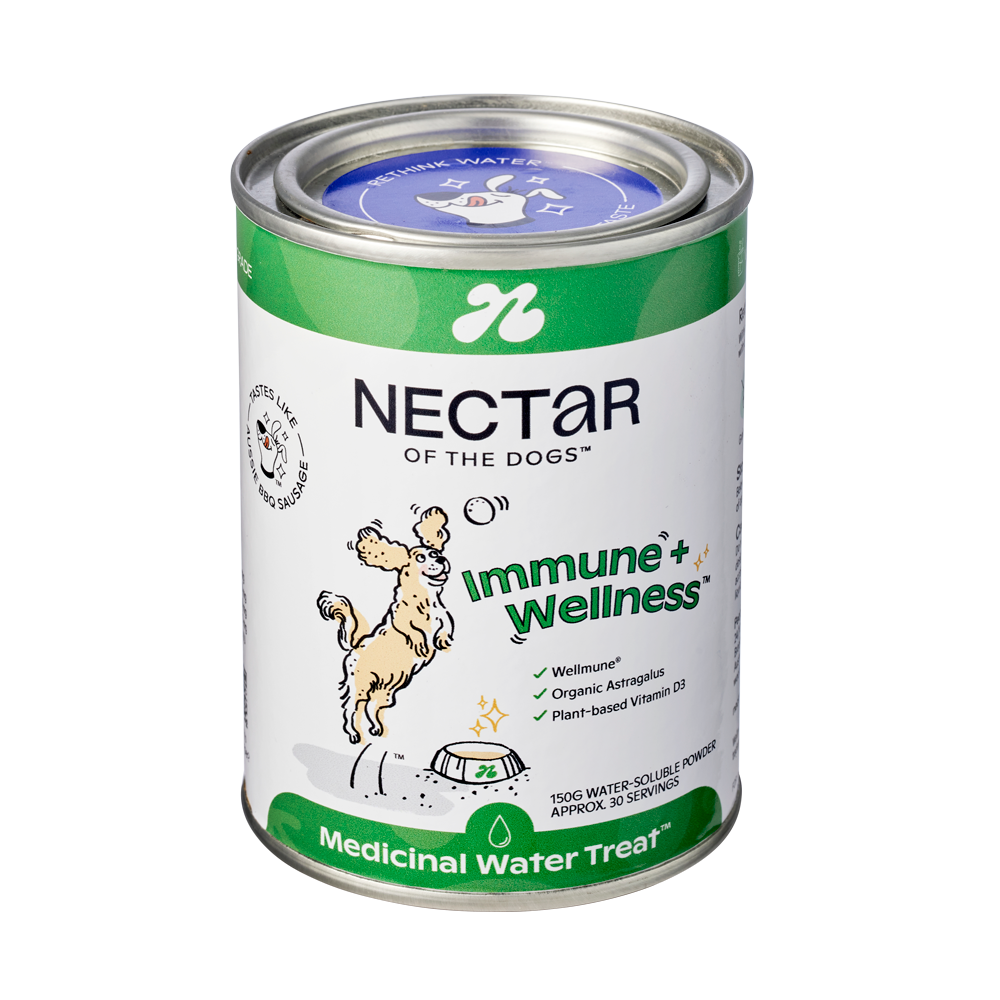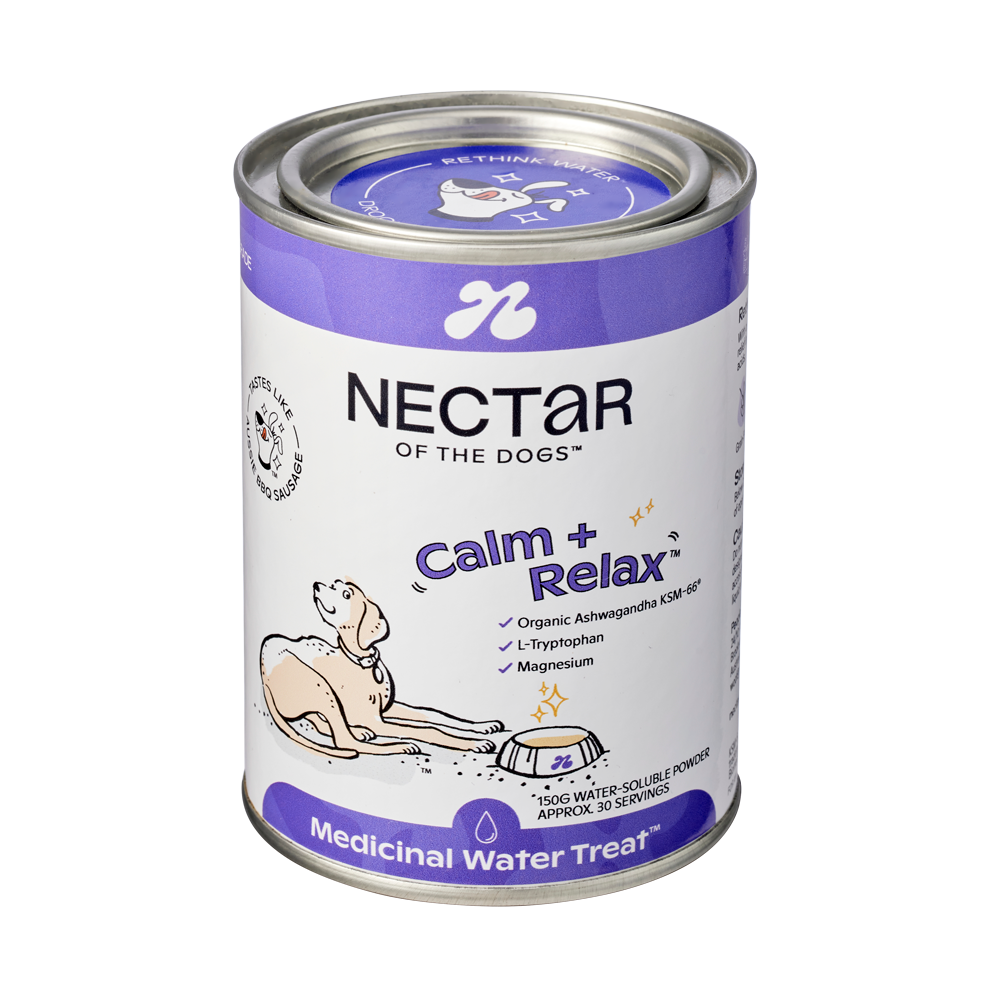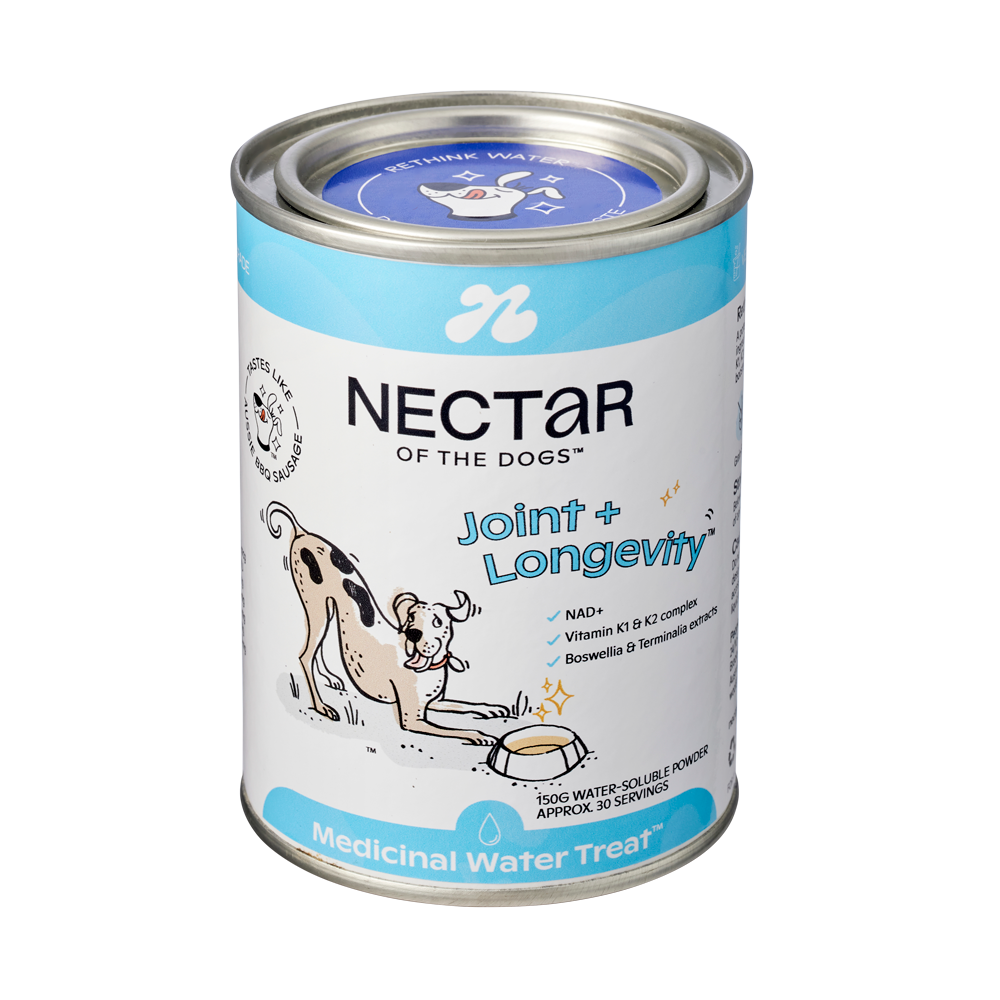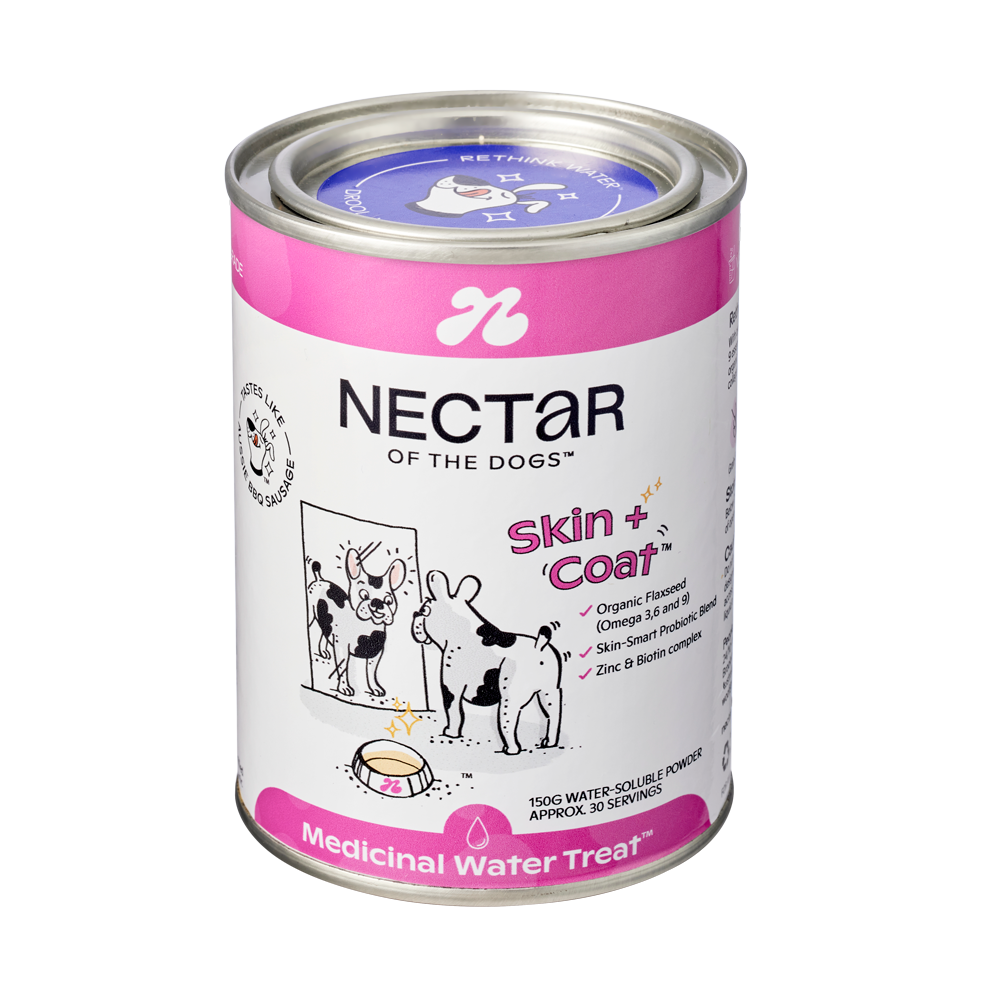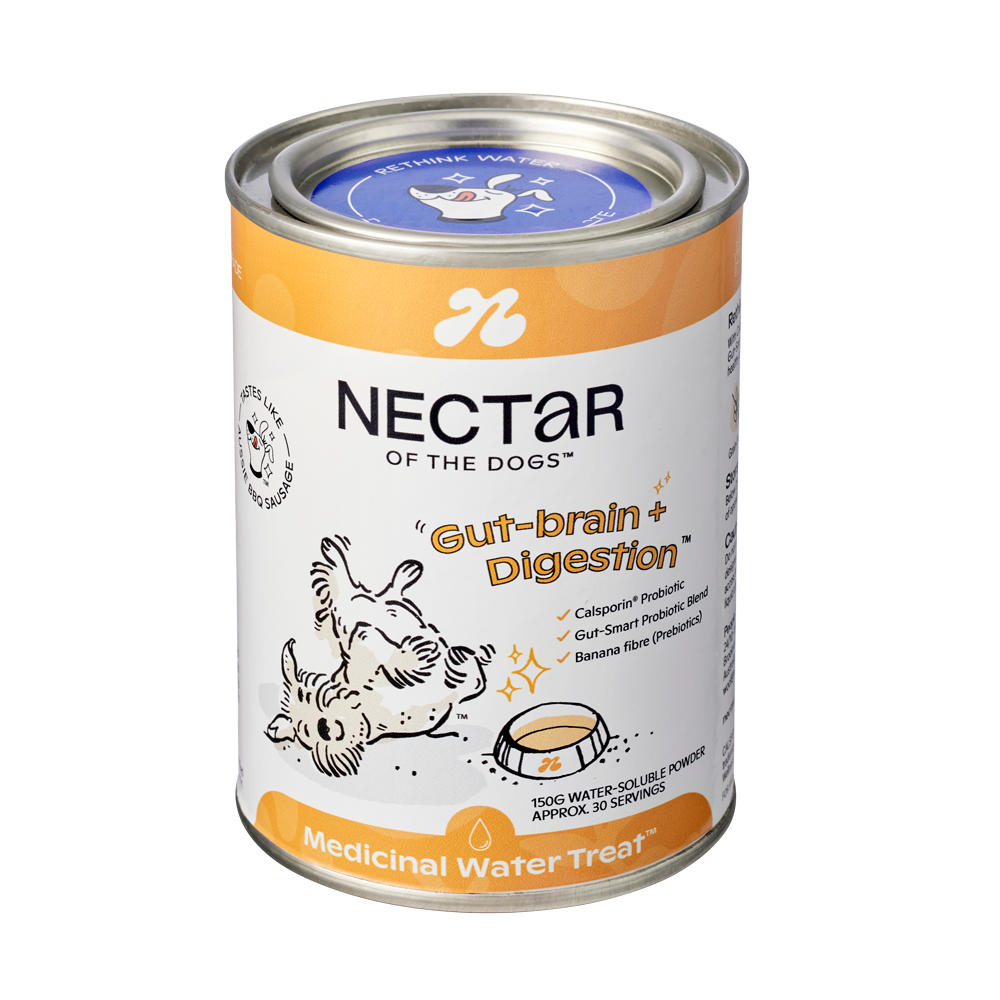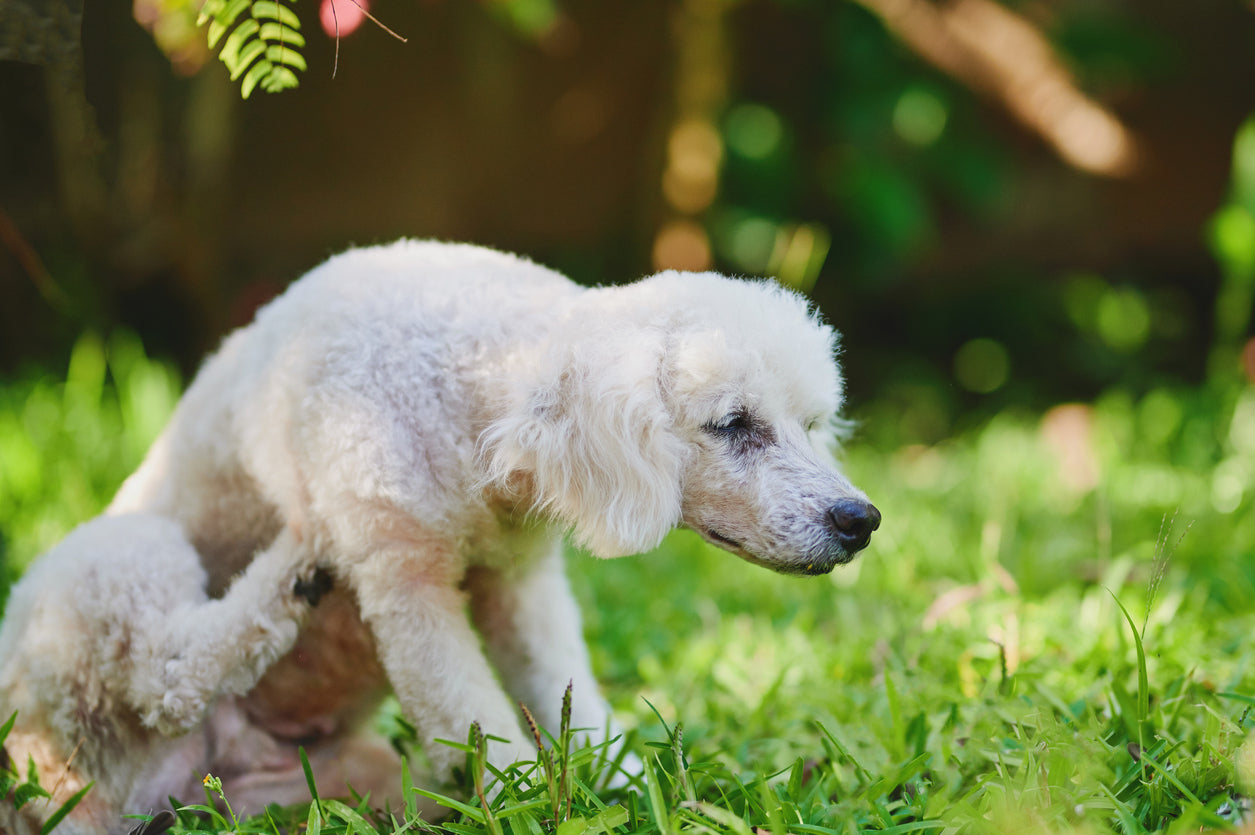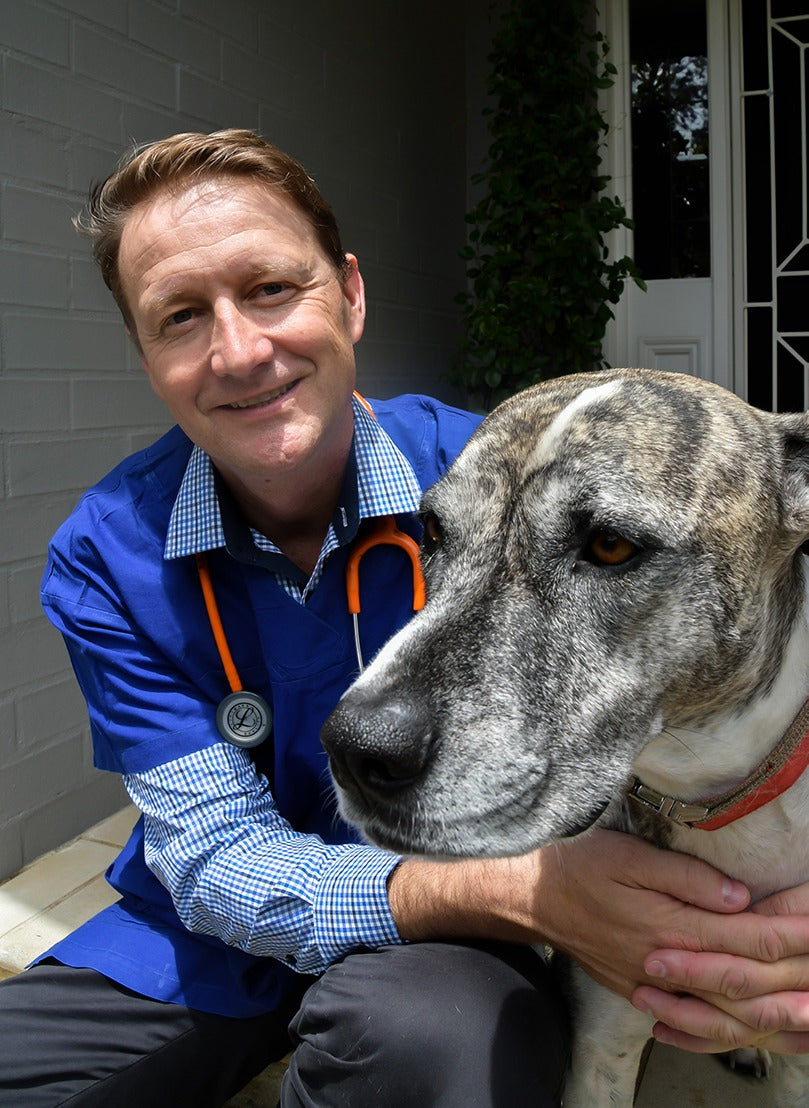Integrative Veterinary Medicine in Action with Dr Matt Muir
Integrative veterinary medicine (also referred to as complementary or holistic medicine) and pet health have a very interesting relationship.
Despite integrative medicine being quite new for many pet parents, it’s a growing and important part of medicine that deserves greater interrogation in the conversation around pet health. Integrative veterinary medicine is the combination of traditional or conventional veterinary medicine with holistic or complementary modalities to offer pet parents more options, tools and therapies to effectively care for their pets.
It relies heavily on thousands of years of traditions, scientific evidence, a self-learning, problem solving mindset, and provides the space for experi mentation and innovation.
mentation and innovation.
The Nectar team met up with Dr Matt Muir from All Natural Vet Care to discuss all things integrative medicine. From adaptogens to treatment plans, Dr Matt highlights the importance of alternative medicine when it comes to the health of our pets.

The 2 groups of pets Dr Matt treats in his practice
Dr Matt noticed that there are two main groups of pets that are treated at his clinic.
The first group is older pets who have health issues , life threatening diagnoses and chronic health issues.
When it comes to sick pets, Dr Matt explained that lots of people don’t turn to integrative medicine as their first resort.
In fact, he noticed that this group of pet parents come to him as a fifth or sixth opinion. They come at their darkest hour after visiting multiple vets, being referred by a specialist or after consulting with Dr. Google in the middle of the night, turning to integrative medicine out of desperation.
The second group is younger pets, with parents who want to set up good preventative and proactive health care plans for their fur babies.
Interestingly, some of these pet parents started off as clients who were previously clinging onto alternative medicine as their last resort. This is a testament to the power of integrative medicine, as once people open their minds to it, they’re able to see its full benefits.

What this means for Integrative Veterinary Medicine
Dr Matt’s clinic receives a combination of complex and preventative cases, allowing them to access a wide pool of data.
Dr Matt sees lots of animals with refractory diseases that don’t respond well to standard treatments. Because he sees pets with a range of major issues and chronic diseases, he likes to read through all of their records and understand patterns. This provides him with footprints and insights which helps him further in addressing the root causes of some of these issues. This experience is very useful when it comes to integrative medicine, as it’s an area focused on research, insights and innovation.
A typical case study for an Integrative Vet
To see integrative medicine in motion, we asked Dr Matt to provide us with a hypothetical case study, practical applications and a treatment plan.
Unlike regular 15 minute vet sessions that don’t usually go into detail, integrative medicine takes a more in-depth approach, assessing the entire lifestyle of the pet.
In this hypothetical case study, Dr Matt painted a typical scenario that would occur during a consultation with a client.

Subject: Fluffy, 1.5 year old oodle
A client takes Fluffy to Dr Matt after visiting six different vets. The client is after an opinion for Fluffy’s itchy skin.
Fluffy has reflux, anxiety, an ear infection and diarrhoea with mucus in it. She’s becoming quite fussy and difficult to give medicine to. She’s scared of the vet because she’s been given an anti-itch injection, she’s had a course of antibiotics for her diarrhoea, and she’s had lots of vaccinations.
The client wants a second opinion for Fluffy’s itchy skin, because after seeing a dog specialist, Fluffy had a bad vomiting attack and was put on medication. Fluffy had also been to the local vet and received a 5 day course of steroids to ease her itching.
Fluffy is probably an oodle, but the owner isn’t too sure, as the breeder didn’t give her much information. Fluffy also had diarrhoea the first week she came home.
After the client gives Dr Matt all of this information, he’ll typically ask a list of follow up questions.
In Fluffy’s case, Dr Matt wants to know more about her digestion, so he asks:
- If Fluffy has regular bowel motions
- If she has bad smelling wind
- If she likes her food
- If she eats grass
Whilst he’s asking these questions, he notices that Fluffy is itching in the room and is quite stressed and hyper-aroused. To Dr Matt, this seems like a classic skin gut brain axis imbalance, due to a dysregulated immune system that hasn’t developed properly.
The gut, liver, skin and brain axis
What does this diagnosis mean?
Dr Matt explains that the gut, liver, skin and brain are all interconnected. Therefore, when there’s an imbalance, you need to parallel process fixing all of these areas, one by one.
In Fluffy’s case, this would mean multiple vet visits and treatments.
When the immune system is dysregulated, it becomes threatened by stressors that aren’t actually dangerous. This imbalance causes the body to constantly produce high levels of cortisol, which triggers the body to give off an immune response, even for things that aren’t threatening.
So, the main goal for Fluffy is to steer the immune system development back on course so the body can correctly navigate what is good and bad for it.
Adaptogens to balance the immune system
Stress is bad for the body as it can lead to a host of illnesses. So, to rebalance her dysregulated immune system, Fluffy would need to consume adaptogens.
Adaptogens are a compound that use a variety of different mechanisms around the gut, liver, skin and brain axis. They work to regulate the body so it can better manage stressful situations. In other words, adaptogens improve resilience to psychological, emotional and physical stress.
Fluffy’s treatment plan
Moving forward, Dr Matt would devise a treatment plan for Fluffy. In Fluffy’s situation, his treatment plan would look something like this:
- Fluffy would be put onto immune modulating adaptogenic herbs, such as ashwagandha KSM-66.
- He’d also match Fluffy up with a behaviourist to help manage her triggers.
- For the itching, he’d give her a medicated shampoo.
- Fluffy would begin to take a clay based probiotic for her diarrhoea.
- She’d also be switched to a raw / wholefood diet, and put on a custom herbal tonic.
As you can see, this treatment plan encapsulates all areas of Fluffy’s health. This is because the gut, liver, skin and brain axis work together.
Integrative medicine can also be based on trial and error. As such, after providing Fluffy’s owner with a plan, Dr Matt would stress that the plan may or may not work. He’ll need to see Fluffy again to see if anything needs to be changed, but with this holistic approach, the owner would likely see some positive changes.
Integrative medicine is focused on helping our pets live their longest healthiest lives. It focuses on all facets of our pets' lives and how these work together to bring about the most health and vitality for our furry friends.
Want to learn more about integrative medicine? Listen to our full chat with Dr Matt Muir on our Youtube Channel or your favourite podcast app (search for : A Modern Animal).
